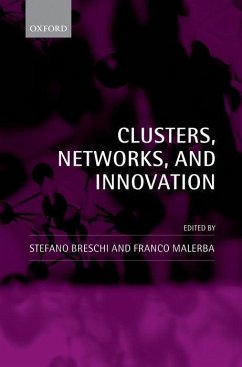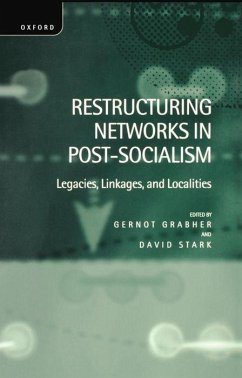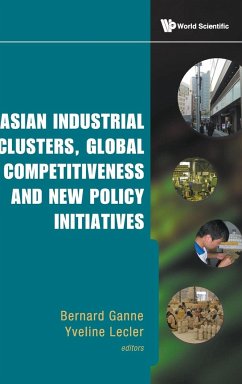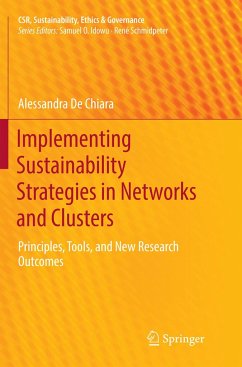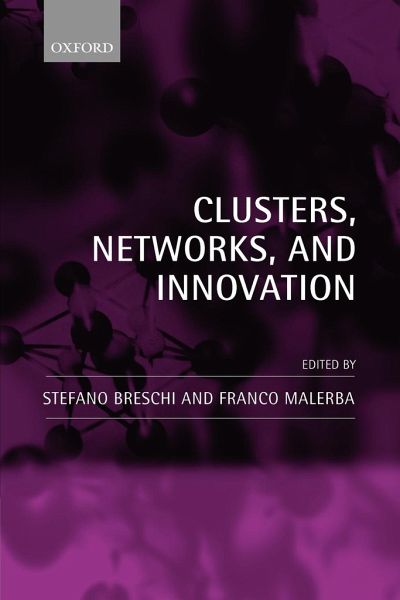
Clusters, Networks and Innovation
Versandkostenfrei!
Versandfertig in 1-2 Wochen
95,99 €
inkl. MwSt.

PAYBACK Punkte
48 °P sammeln!
Governments and regional authorities often express the belief that the key to prosperity and economic expansion is related to the ability of countries to sustain regional clusters of competitiveness and innovation. The book reviews the most important conceptual approaches to the analysis of the emergence, growth and evolution of clusters of innovation. Drawing from the different experiences of industrial districts and high-tech regions such as Silicon Valley, Boston's biotech region, and Hsinchu-Taipei, the contributions in this book offer a broad interpretative framework and policy implicatio...
Governments and regional authorities often express the belief that the key to prosperity and economic expansion is related to the ability of countries to sustain regional clusters of competitiveness and innovation. The book reviews the most important conceptual approaches to the analysis of the emergence, growth and evolution of clusters of innovation. Drawing from the different experiences of industrial districts and high-tech regions such as Silicon Valley, Boston's biotech region, and Hsinchu-Taipei, the contributions in this book offer a broad interpretative framework and policy implications for the creation and strengthening of competitive clusters. Themes include: · the wide variety of existing clusters and the diversity in their emergence and growth; · the international mobility of factors and demand linkages; · the role of different network types and the social setting; · the accumulation of capabilities in key large actors and the importance of spinoffs and new firm formation; · the role of different learning regimes and sectoral specificities; · the importance of social networks, labour mobility, and face-to-face contacts as vehicles of knowledge spillovers. Broad implications are drawn for the design of policies to encourage successful economic clusters in developed and developing clusters.



